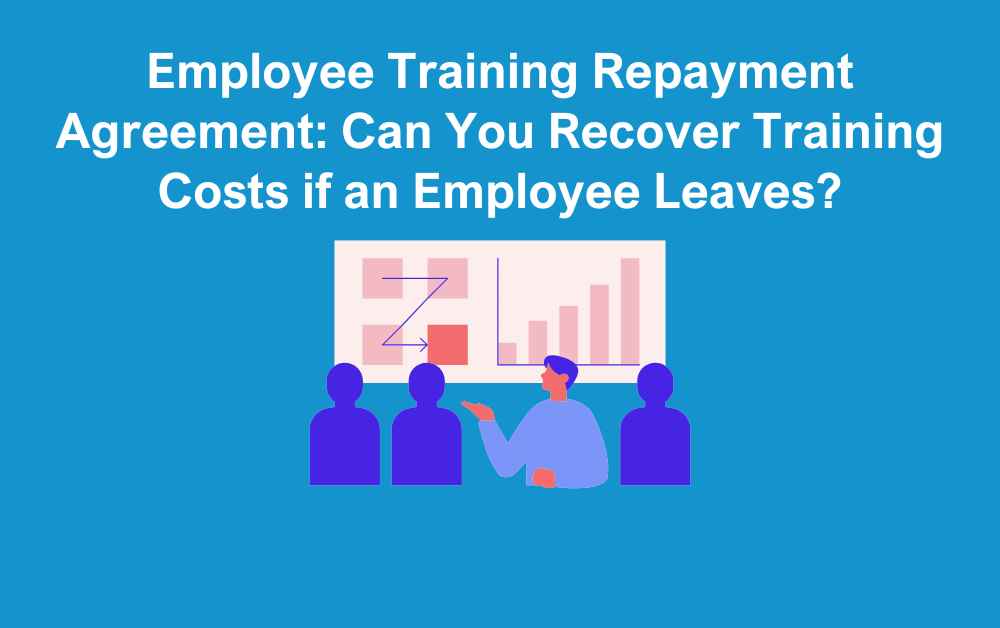One of the most common concerns we hear from employers is: Can I recover the cost of training if an employee leaves my company shortly after receiving it?. The answer depends on whether a clear and fair employee training repayment agreement was put in place before the training began.
In this blog, we’ll explain what this agreement is, when and how it can be enforced, and the legal and ethical considerations UK employers need to be aware of.
What Is an Employee Training Repayment Agreement?
An employee training repayment agreement is a written document – often built into the employment contract or signed as a standalone agreement – that outlines when and how training costs will be repaid by an employee if they leave the company within a specified timeframe after the training.
These agreements are legally enforceable in the UK, provided they are:
- Fair and reasonable
- Signed in advance
- Clear about the amount and repayment schedule
Why Employers Use Training Repayment Agreements
Employers use these agreements to:
- Protect against the loss of expensive training investments
- Ensure clarity and transparency with staff
- Deter employees from leaving immediately after completing costly training
- Recover part of the costs in a legally compliant way
Without such an agreement in place, UK employers have no automatic right to deduct training costs from an employee’s final pay.
Example of an Employee Training Repayment Agreement Clause
To give you an idea of what this looks like in practice, here’s an example clause:
Sample Clause:
The employee agrees to repay external training costs funded by the company if they leave within 12 months of completing the training. Repayments will be:
- 100% if the employee leaves within 6 months
- 50% if the employee leaves between 9-12 months
- 0% after 12 months
The repayment may be deducted from final salary, subject to compliance with National Minimum Wage regulations.
Best Practice: When and How to Use an Employee Training Repayment Agreement
Before the Training Starts
Always ask the employee to sign the agreement before any training begins. The agreement should include:
- The total cost of the training
- The repayment timeframe
- The amount repayable depending on when they leave
- How repayments will be handled (e.g. final salary deductions)
Upon Resignation
If an employee resigns, respond in writing and confirm any deductions that will be made from their final pay – referencing the employee training repayment agreement and providing a breakdown of the amount.
Keep all communications in writing to ensure a clear paper trail.
Legal Considerations in the UK
To stay compliant with UK employment law, keep the following in mind:
- Repayments must not reduce pay below the National Minimum Wage
- The agreement must be signed and agreed in advance
- Repayment terms must be reasonable and not punitive
Trying to recover training costs without a proper agreement, or deducting too much, could result in legal disputes or tribunal claims.
Maintain Good Relationships
While it can be frustrating to lose someone after paying for their training, it’s always good practice to end employment relationships positively. Former employees might one day return, recommend your business, or even become clients.
Avoid conflict where possible – stick to the agreement and handle the process professionally.
Quick Employer Checklist
Before deducting any training costs:
- ✅ Do you have a signed employee training repayment agreement?
- ✅ Is the repayment fair and proportional?
- ✅ Have you confirmed the deduction in writing?
- ✅ Will the deduction keep the employee’s final pay above minimum wage?
Need Help with a Training Repayment Agreement?
If you’re considering introducing an employee training repayment agreement into your contracts, or you’re dealing with a situation where an employee has left after costly training, we’re here to support you.
Contact The HR Booth, your UK-based outsourced HR consultancy, for expert advice and legally sound solutions tailored to your business.







